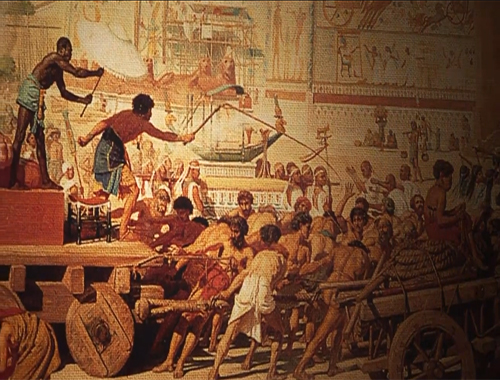Bluffing
- Details
- Hits: 2430
Bluffing
There is an interesting incident in Tafsīr Minhajus Sadiqīn to illustrate a person who tries to be a blatant cheat. Two friends had collected some money. They decided to hide it below a tree lest it is stolen from them. When night fell one of the two came to the tree and took away the money. The next morning when both came together and found the money missing the one who had stolen it caught the collar of the other and said: You must have stolen it because no one else had seen us hiding it. The poor fellow swore he was innocent but the thief took him to court.
The judge asked him if he could provide a witness. He said the tree will testify for him. That night the thief told his brother to hide in the hollow of the tree and when the judge comes in the morning he should blame the other person for having taken the money. So when the judge came in the morning and asked the tree to testify, the thief’s brother shouted from inside blaming the other person for stealing the money. The judge sensed foul play for trees do not usually speak. He ordered that it should be set afire so that it will not be a cause for mischief. It was set on fire. The thief was worried but kept quiet. When it was unbearable he began to scream and shout. The people pulled out the thief’s brother half-dead from the hollow trunk. When the judge asked him he confessed the truth. The judge took away the money and gave it to the falsely accused and the thief was given a tough sentence.
Muhaddith Jazaeri writes in his book Zahra Rabi an interesting anecdote. There was a man in Isfahan who used to beat his wife but unfortunately she succumbed to his beating though he had not intended to kill her. But when she was dead he became fearful of her relatives. In a state of anxiety he came out of his house and met an acquaintance to whom he posed his problem. The friend told him to invite a young man to his house and behead him and put the severed head next to his wife’s corpse. Then he could tell the wife’s relatives that he had found them together in bed and was not able to control his ire and slew them both. The man liked the idea and sat at the doorway in anticipation of a young man. After some time a handsome youth passed by his house. He invited him inside and beheaded him. Then he summoned the wife’s relatives and told them the concocted story. They were satisfied but the person who had devised this plan had a teenaged son who did not reach home that day. The man was worried and when the son failed to turn up he came to the house of the one whom he had offered evil advice and asked him if he carried out the plan suggested by him. ‘Yes’, said he and took him near the dead bodies. He was shocked when he saw that the youth he had killed was his own son. His evil advice caused the death of his own son. The moral of this story is that one who digs a pit for others falls into it himself. History is replete with such incidents.
A similar incident is mentioned in the book Mujjatul Baiza. It concerns jealousy as well as trickery and we have mentioned it in the chapter of jealousy.











